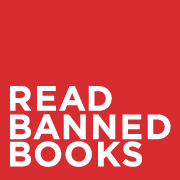Banned Books Week: September 25-October 1, 2016
Every fall since 1982 the American Library Association (ALA) has celebrated Banned Books Week. This annual event was started by the Office for Intellectual Freedom, a division of the ALA which highlights threats against our freedom to access information and freedom of expression.
Every year books are challenged throughout the library world. According to the ALA Banned Books Week website, a challenge is “an attempt to restrict or remove materials, based upon the objections of a person or group whereas a banning is the removal of those materials. Some of the top reasons cited for the challenging of materials are, sexually explicit content, offensive language, homosexuality, objectionable religious views, nudity, racism and sexual education.”
Banning books is an attempt to assimilate everyone to a specific way of thing. Banned Books Week sheds light on several unconventional points of view and the importance of providing access to those points of views. Celebrating Banned Books Week is a way to stress that someone else’s personal taste or dislike should not impede others access to information.
Banned Books and Censorship
Banned Books Week also shines light on the issue of censorship. This issue goes against the general mission of libraries which is 
The following excerpt from Walter Betts, President-Elect of the Texas Library Association July 14, 2015 address at the Hood County Commissioners’ Court meeting provides an excellent perspective on the controversy of challenging and banning library books:
“So what do you do about items in the library that you don’t like? Don’t remove or restrict them. Rejoice that they are there- because that means the items you cherish have the same right to be included in the collection.”
Think about how you can observe the 2016 Banned Books Week. Celebrate your freedom to read.
 Welcome Call:
Welcome Call: